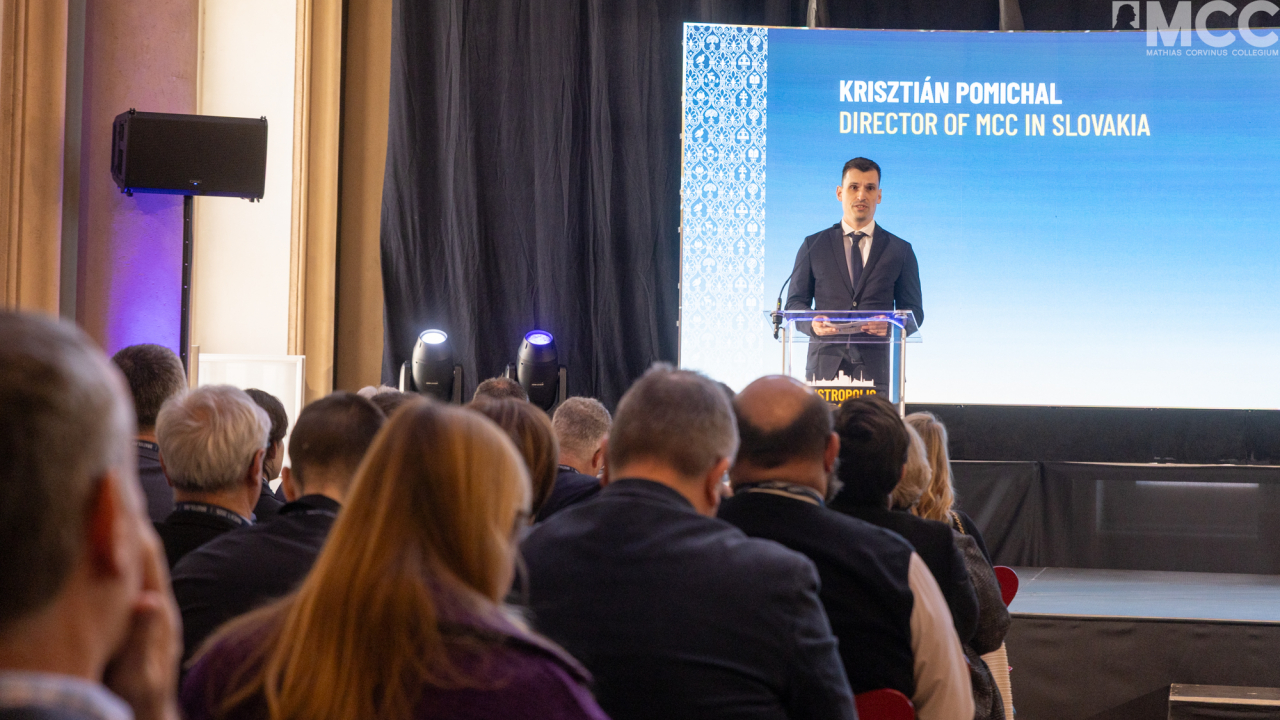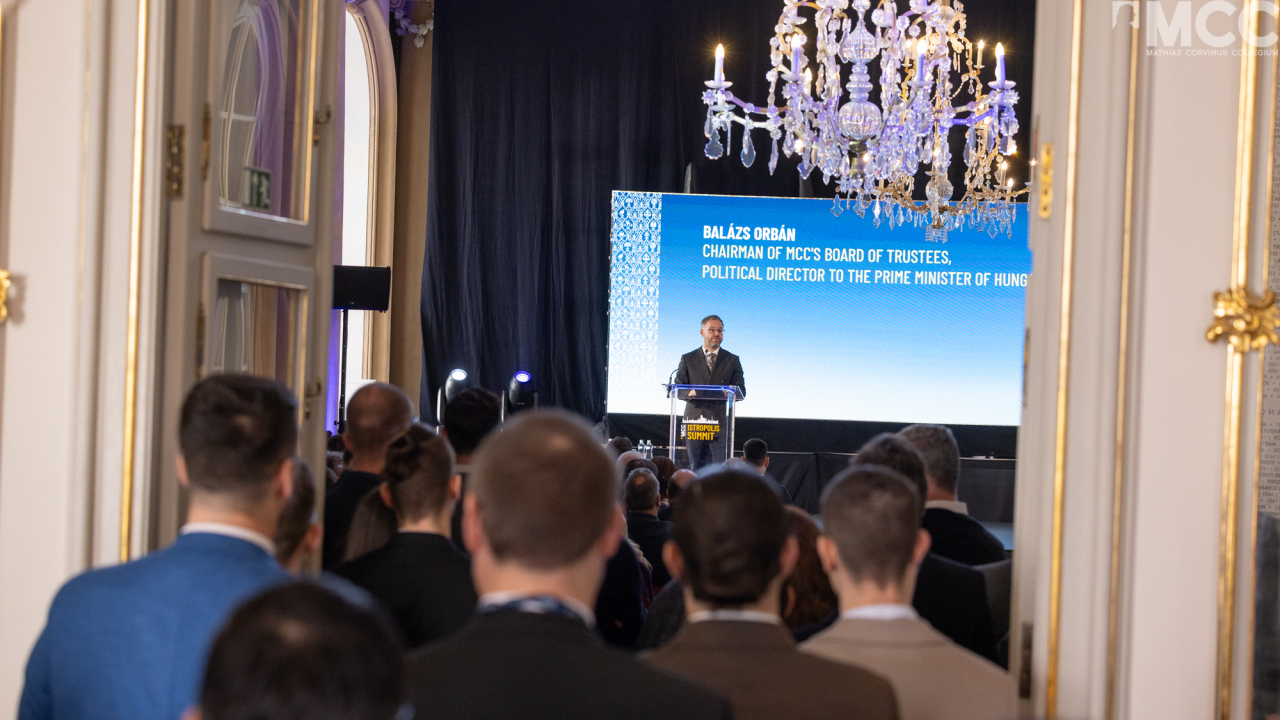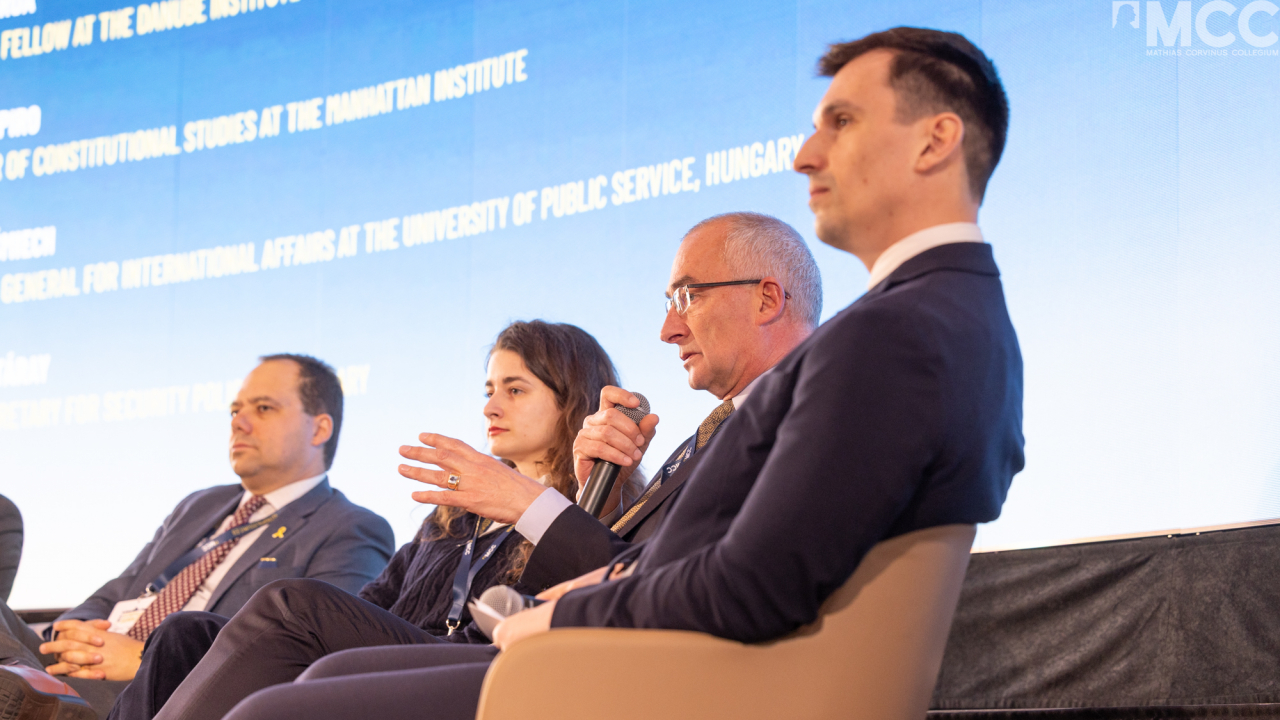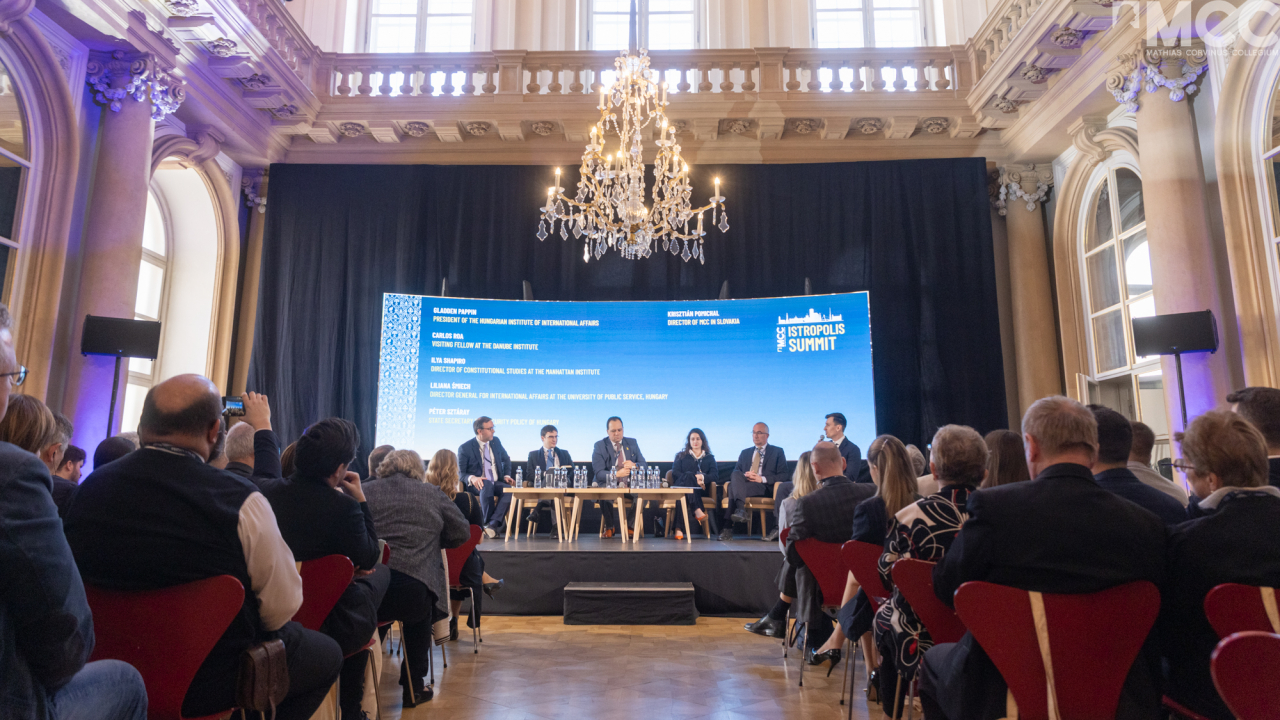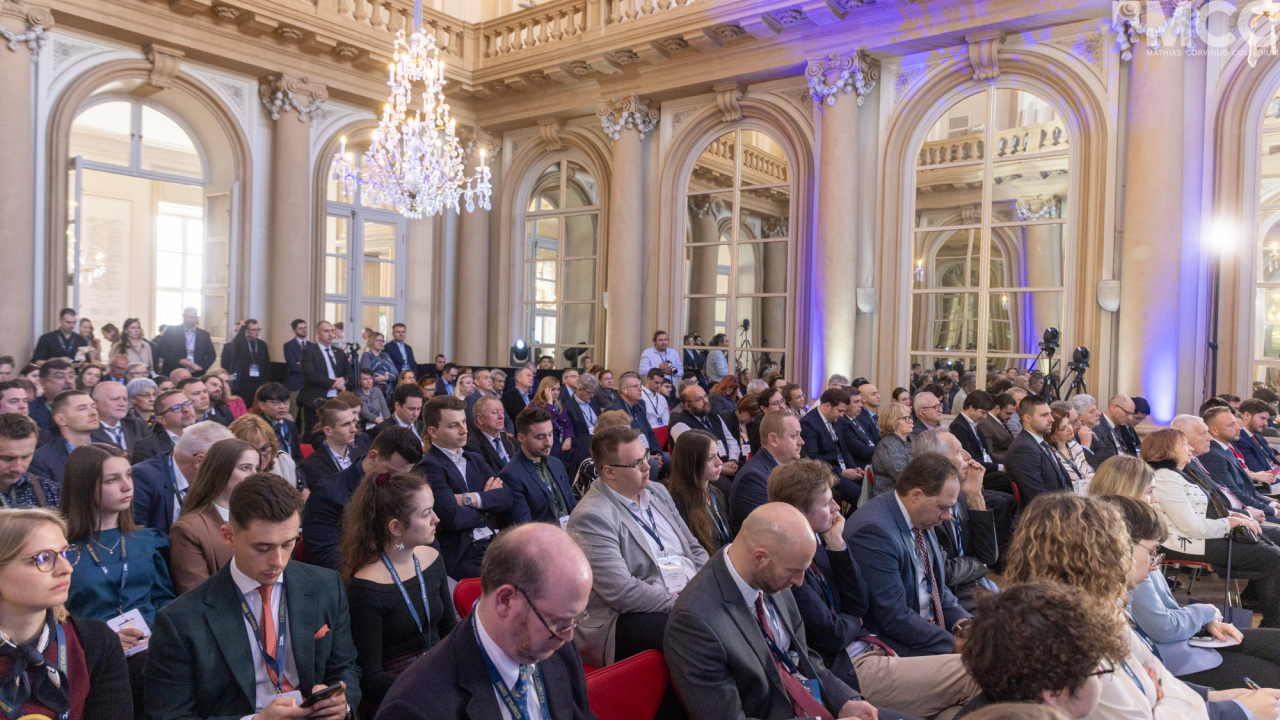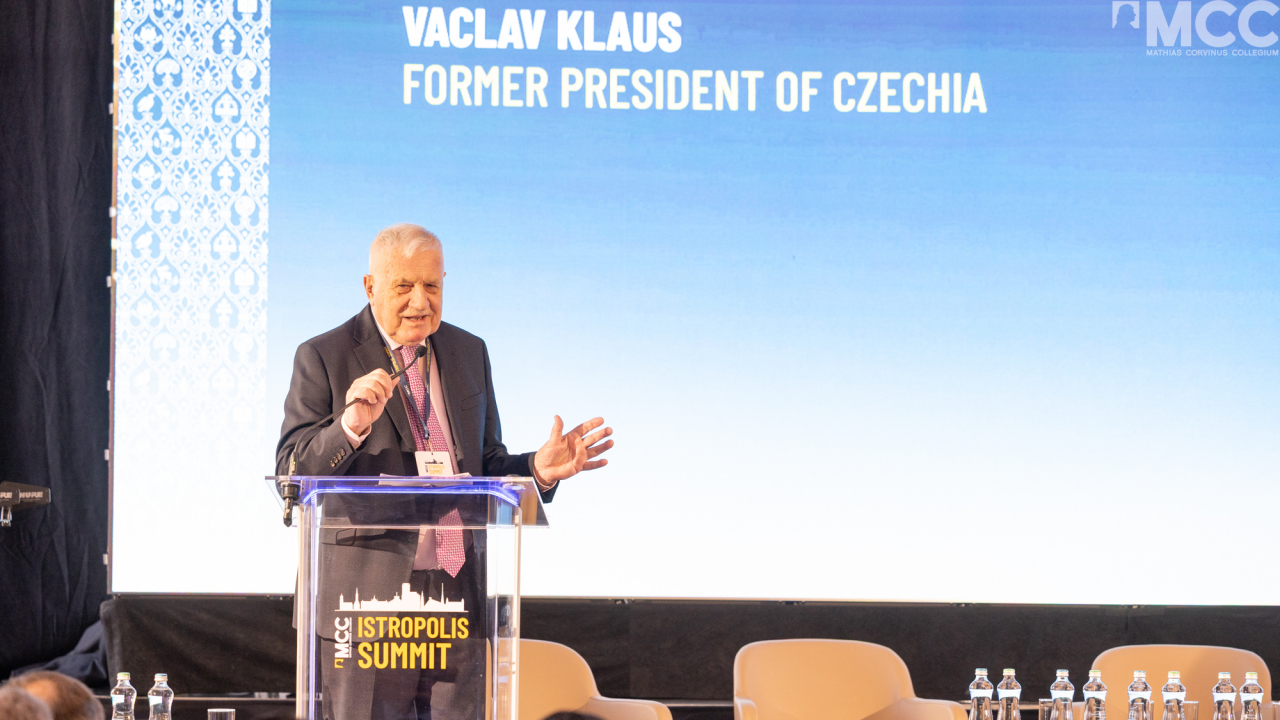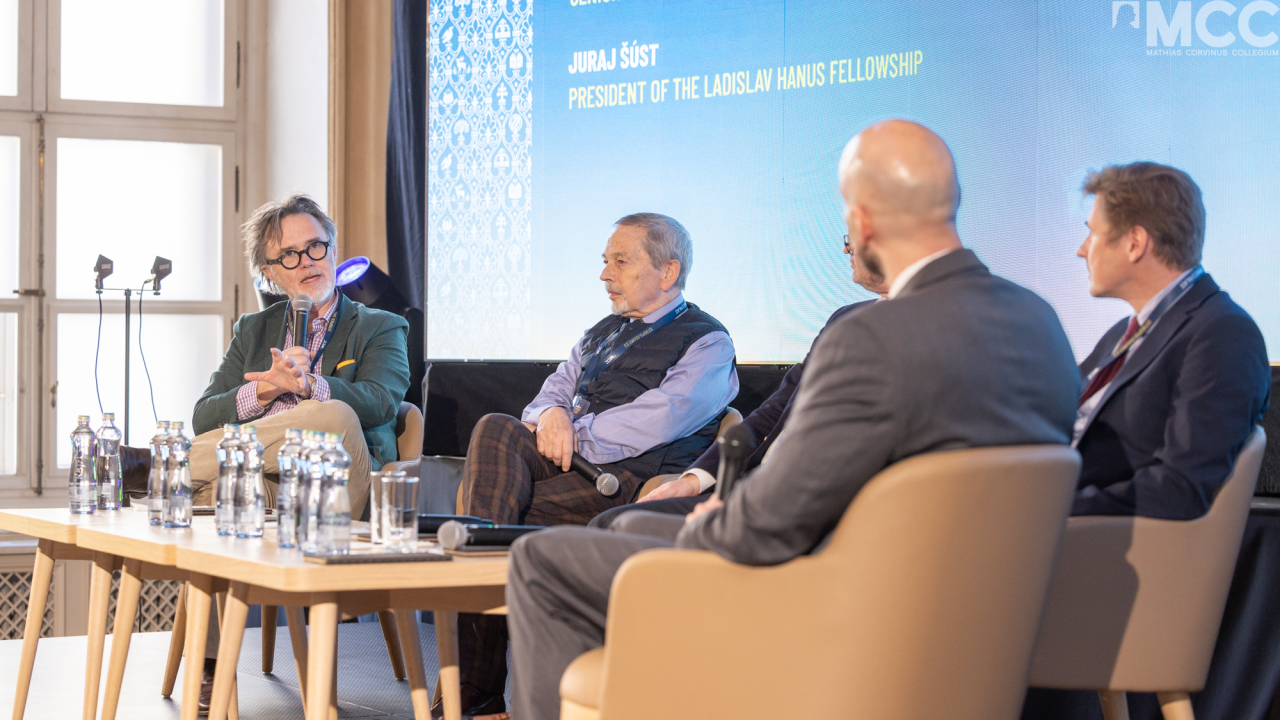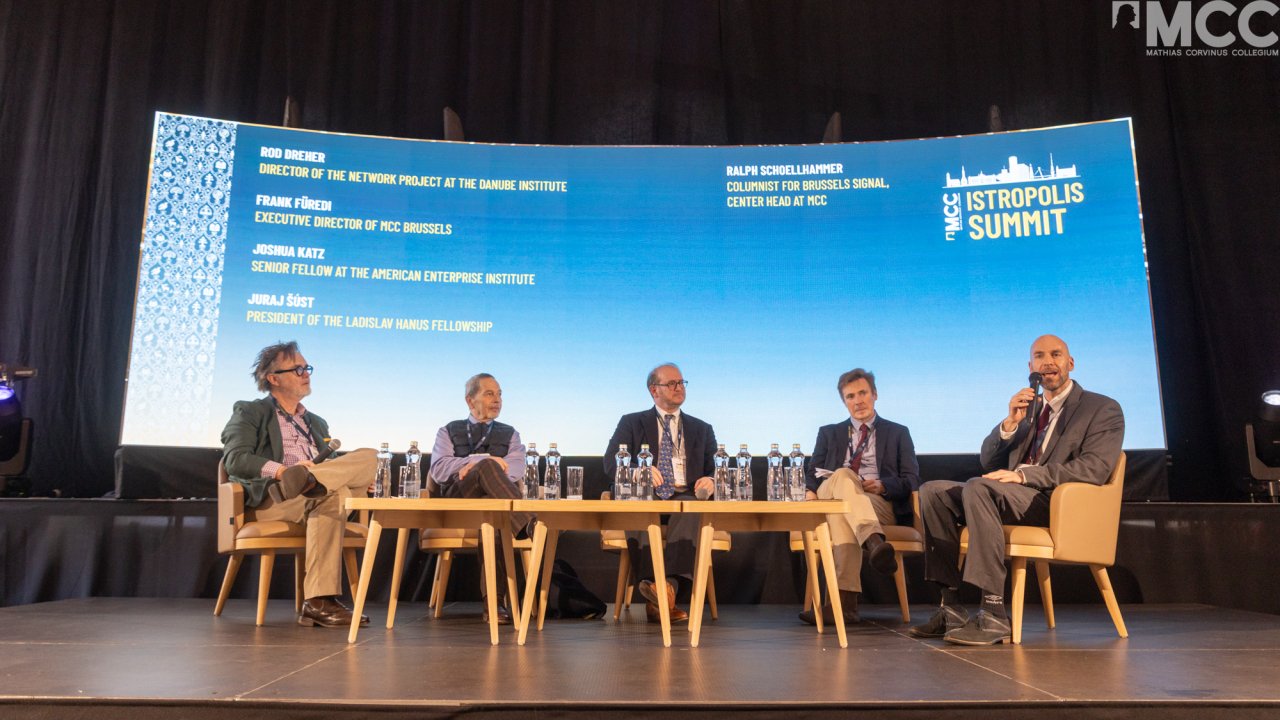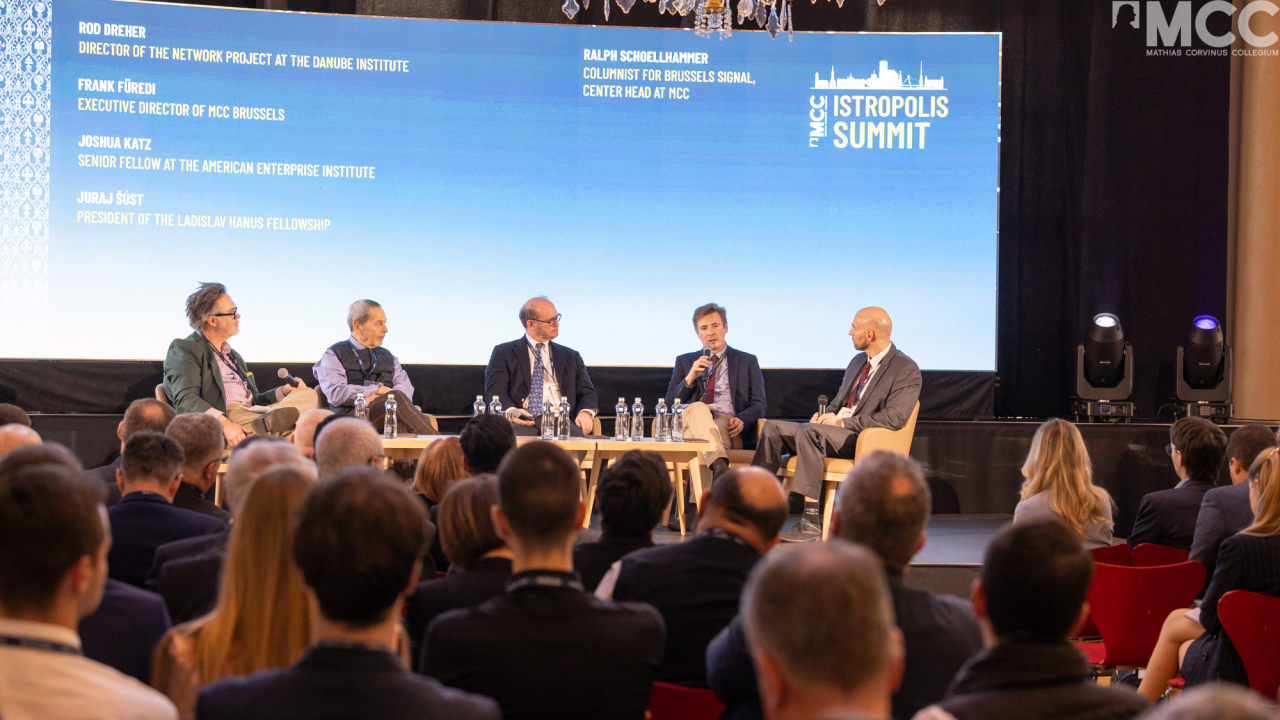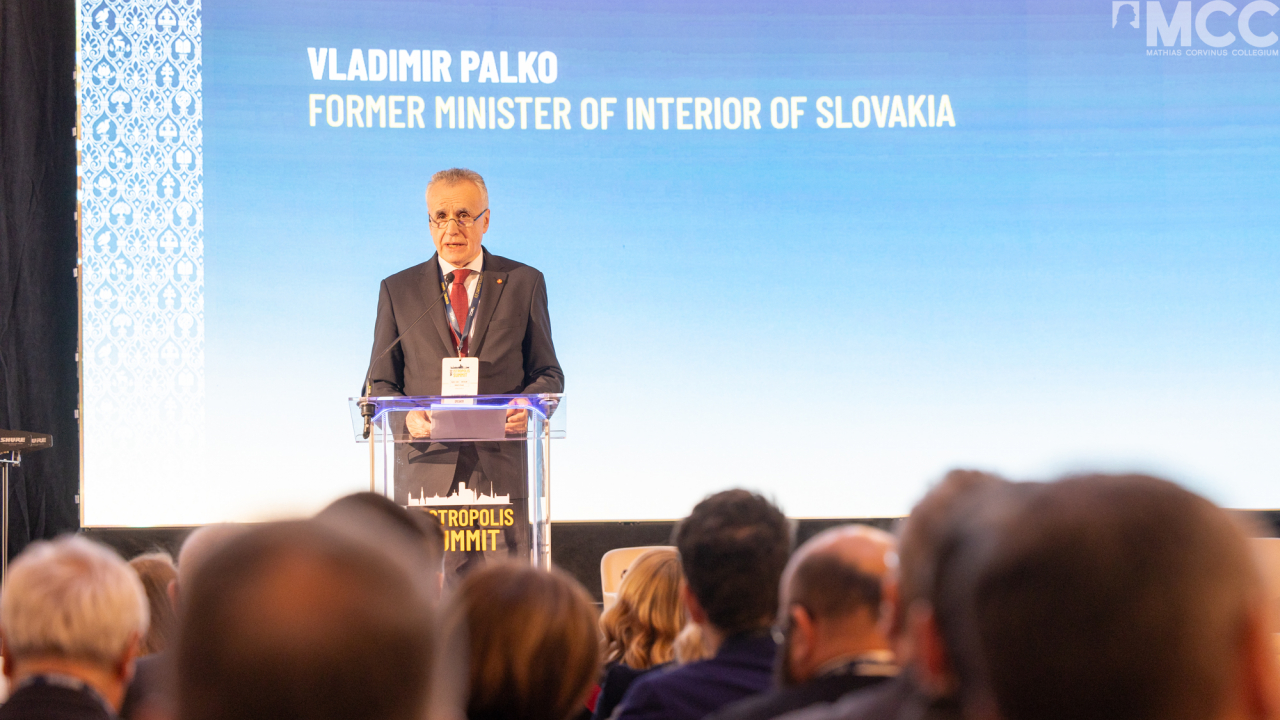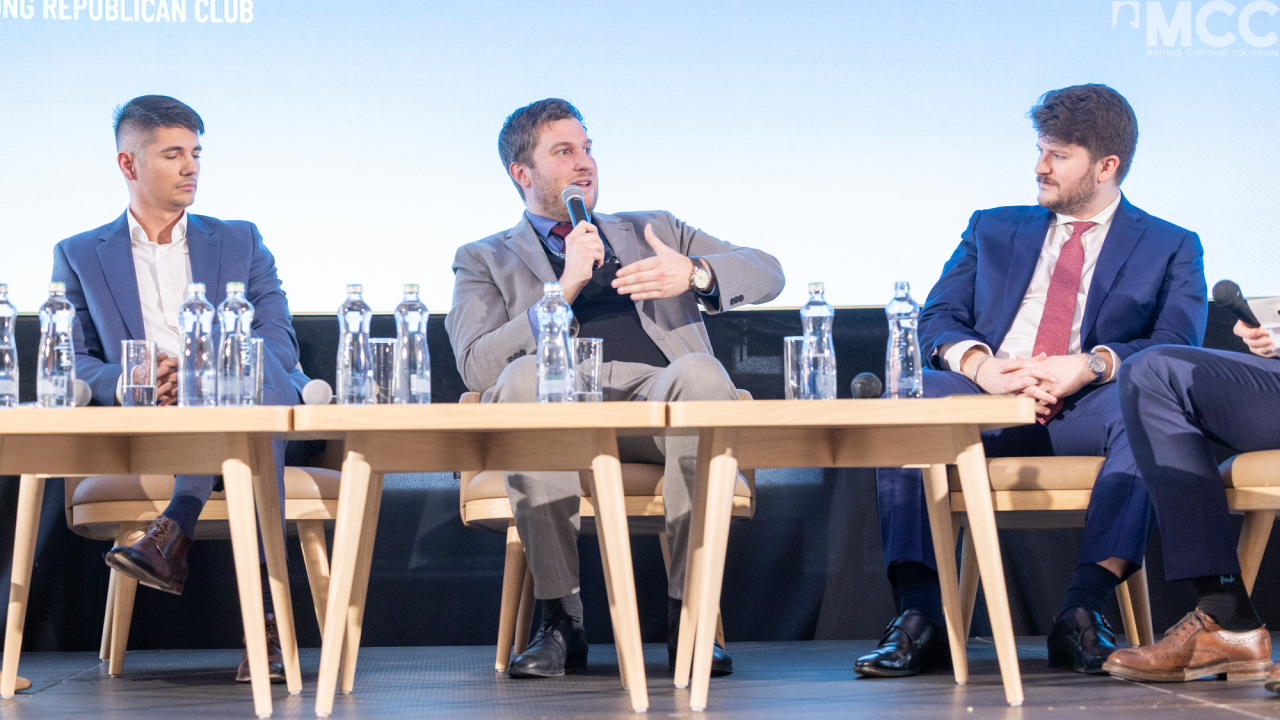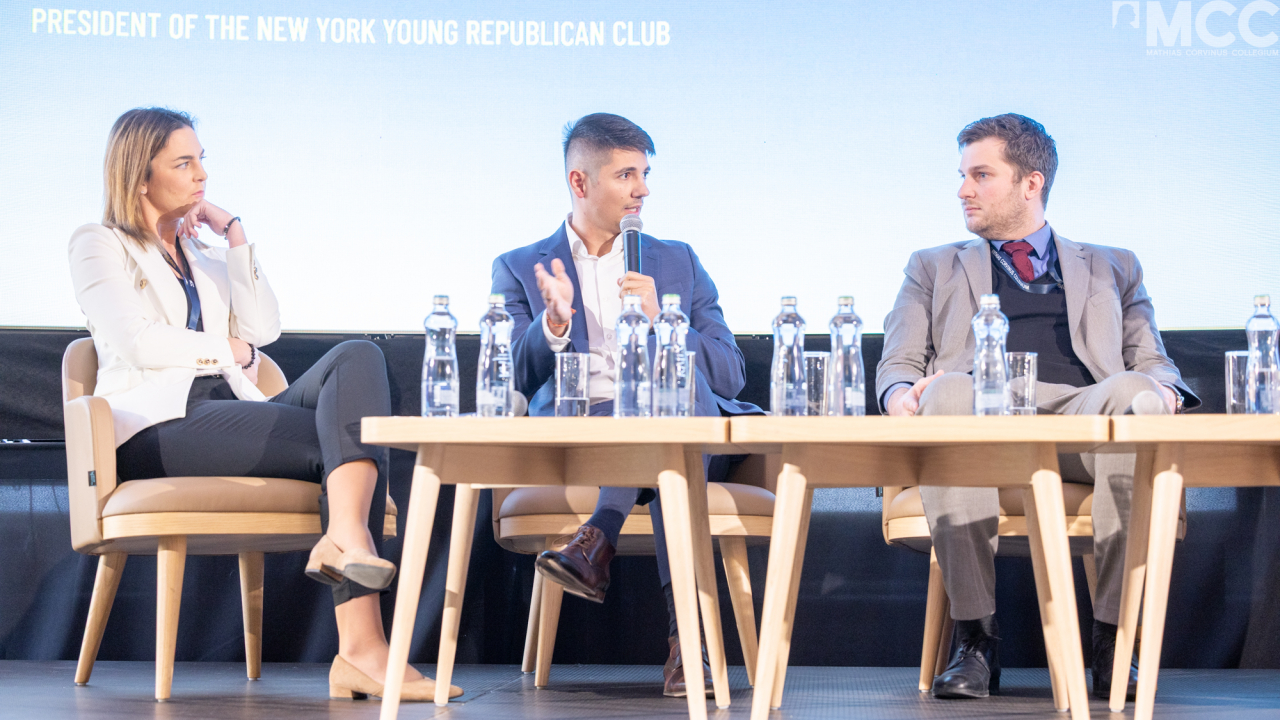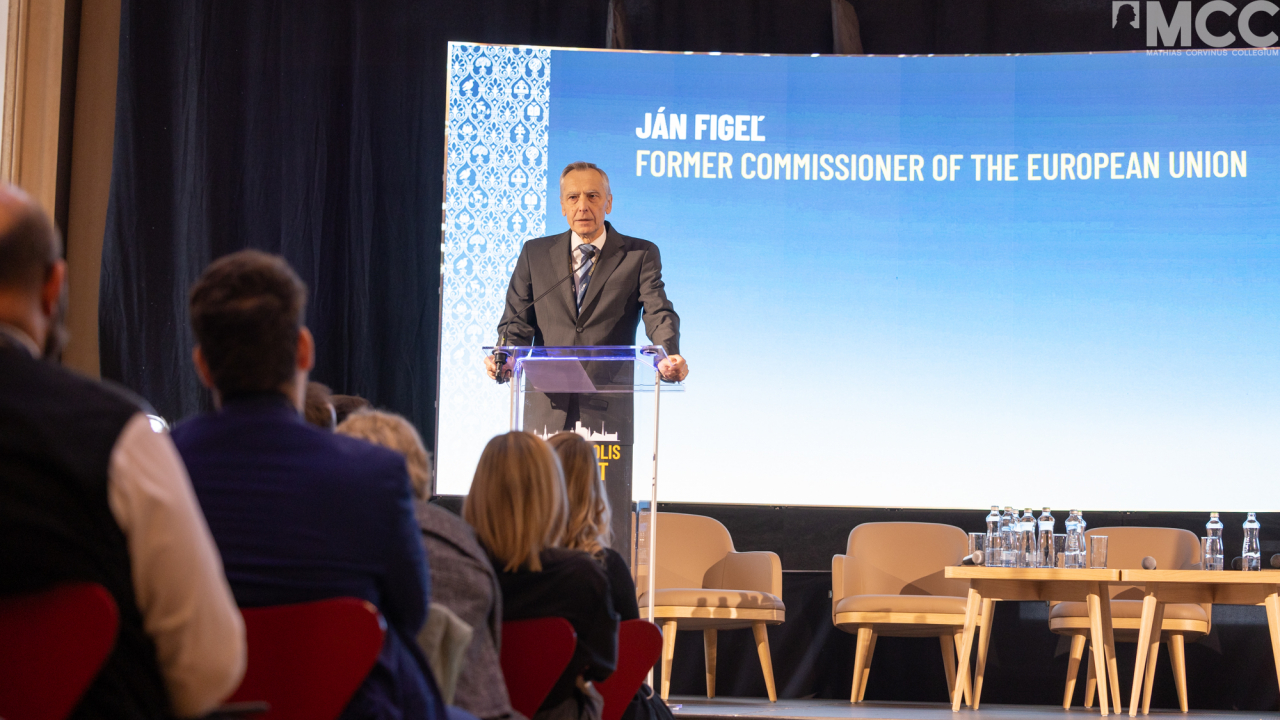Reading time: 2 minutes
Last Friday, MCC Slovakia hosted the inaugural Istropolis Summit in Bratislava, bringing together policymakers, experts, and thought leaders to discuss the pressing societal and geopolitical challenges shaping Central Europe’s future. The event provided a platform for transatlantic dialogue, with participants from both Central Europe and the United States engaging in discussions on economic strategy, migration policy, political leadership, and regional stability.
During the opening address, Balázs Orbán, Chairman of MCC’s Board of Trustees and Political Director to the Hungarian Prime Minister, emphasized Hungary’s approach to global shifts through economic connectivity. He outlined the benefits of building strong partnerships, attracting investment, and ensuring long-term stability. He contrasted this with what he described as Brussels’ more confrontational approach, which he argued leads to geopolitical antagonism and internal division. He pointed to Hungary’s economic strategy as a model, citing industrial development, job creation, and policies that support families as key achievements.
Slovakia’s Minister of Interior, Matúš Šutaj Eštok, addressed the issue of migration and security, highlighting Slovakia’s transition from a transit country to an active participant in migration management. He called for practical solutions based on past experiences and emphasized the importance of coordinated policies that maintain stability and security across the region.
Former Czech President Václav Klaus focused on the shifting political landscape in Europe, noting the impact of external forces on regional politics. He stressed the need for decisive leadership to safeguard national interests and ensure political stability in a rapidly changing global environment.
Vladimír Palko examined migration from a historical perspective, drawing distinctions between the experiences of Western and Central Europe. He pointed out that migration in countries such as the UK and France is often shaped by colonial history, whereas Central European nations do not share this background but still face pressure to adopt EU migration policies. He argued that the region must develop solutions tailored to its own social and political context rather than relying on one-size-fits-all policies.
Ján Figeľ, former European Commissioner, delivered a plenary address emphasizing the need to address the root causes of conflict rather than merely its symptoms. He underscored the importance of Europe’s shared Christian heritage as a unifying force and called for a renewed commitment to peace in Ukraine. He also advocated for the creation of a stronger and more comprehensive European community built on cooperation and dialogue.
The summit featured a series of panel discussions that explored the impact of U.S. foreign policy on Central European stability, the evolving challenges of migration, ideological and cultural shifts in the transatlantic sphere, and the role of young leaders in shaping the region’s future.
